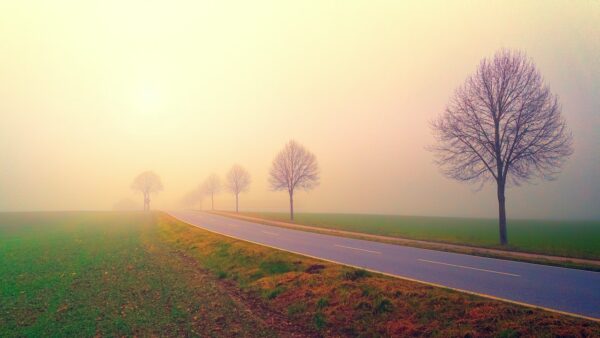“Sanctum of Healing”
by Jay Ilagan
2023 Young Authors Sacred Essays Contest Winner · Published in LEO Weekly April 14, 2023
Miss Della had a calm, soothing voice. There was work to be done—hygiene boxes to be picked up one by one in the adjacent rooms—yet she stayed. A vacuum seemed to have engulfed me. As it consumed my every thought and every breath, she told me to concentrate on her voice as if nothing else in the world mattered. Tears streamed down my face. As I gasped for air, she told me to imagine glitter gliding toward the ground, so I could mimic my breath with its slow fall. My arms compressed my torso. As the firm grip calmed my panicked state, she told me to believe the unthinkable: I was worth something.
The concept of breathing seemed so simple: deep breath in…deep breath out. When I was at my absolute lowest, even the most intrinsic human abilities—breathing and feeling—were difficult to navigate. At the hospital for mental health, true compassion was evident. Miss Della was one of many who took our suffering and alleviated it so that no one had to bear it alone. The other adolescent patients and I found no reason to hide. At our most vulnerable states, we not only accepted everyone for all that we were but also cared for one another as we healed.
The phone calls home served as a bridge between the peace and chaos in my life. One in particular, a family session with my therapist, soothed my inner child: I came out to my parents.

Photo Credit: Johannes Plenio
As a Filipino growing up in a Catholic household, homosexuality was very frowned upon. My strict dad would scold me for any small gesture that was a bit too feminine, and my religious mom told me that if I was gay, she would support but not accept me. At that point, I could never accept myself. I began to question everything. Would that support include her love or was it purely her parental obligation? Would I go to hell and suffer eternally for a “crime” I didn’t choose to commit? Would I deserve it?
After that phone call, each of those questions was answered or no longer needed to be. My nanay and tatay expressed their unconditional love for me. Their only concern was steadfast: my health and well-being. The love and acceptance I felt in that hospital began seeping through that barrier into my personal life; at that moment, I caught a glimpse of hope for the future of humankind.
Ever since my time at the hospital, I’ve longed for the same kind of comfort, warmth, and acceptance that I had only ever felt in that sanctum of healing. When I finally adjusted back to the outside world and its prejudice and hate, I felt resigned to the lack of trust across humanity. There were only echoes. I noticed the tendency to shape oneself into the “accepted” standard and to follow the masses. Though, I knew that without the individual, there would be no true acceptance.
I had lived my entire life behind a mask, obscuring my vision of not only myself but of others. I couldn’t accept my peers for all that they were when I hadn’t even been able to fully accept myself. I found that the pathway toward acceptance begins with the belief that we are all unique. We are all worthy of love.
In our country, tensions grow each and every day among cultures, religions, ethnicities, and sexualities. I can confidently say that the American environment rests on a defensive black and white mentality. We the people have fallen victim to it. The idea of difference is not an implication that one way is right while the other is wrong. I’ve witnessed this way of thinking on multiple occasions, ranging from hostility against the LGBTQ+ community to cultural comments criticizing how rice shouldn’t be eaten with hands.
In the end, acceptance relies on exposure. In the absence of vulnerability and opportunity, we may never progress past the “us versus them” mentality. We have the potential as a human family to conquer our pains together. I’ve seen it happen. Whether it be in our education system or elsewhere, there needs to be greater exposure to diversity. Exposed, the human population will be able to better understand one another and possibly realize that we all have commonalities beyond what meets the eye.
The hospital served as my sanctum, my hope. However, I have faith that this world can be its own sanctum of healing if we allow it to be. We all bathe in the warmth of the sun and awe at the celestial beauty of the moon against the night sky. We all bear the darkness of pain and suffering. On the other hand, we all share the light. I witnessed the light shine in those kids through the tenderness of their compassion and their ability to show their true selves. They are the stars of the future—the bright hope for the unity of humanity.
Jay Ilagan is a senior at St. Xavier High School. He is involved as a varsity archer and as president of the Medical Careers Club. He was born in the Netherlands and moved to Louisville with his family at the age of 2. Once in college, Jay plans to major in psychology in hopes of pursuing a potential career in psychiatry.